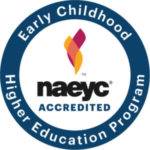Early Childhood Education
- Overview
- Learning Outcomes
- Student Teaching Practicum
- Early Childhood Teacher Credential (ECTC)
- Degree Requirements
- Program Accreditation
- Contact Information
The degree program includes a liberal arts core in addition to specialized courses in teacher education. This two-year program is designed to equip the student with the theoretical knowledge, practical experience and skills needed to work with children under the age of eight. The education courses require field placement and observation hours to be completed outside of class meetings. In addition, a student teaching practicum is required for all pre-service teachers (see additional details below).
The curriculum prepares students for employment as classroom teachers, assistant classroom teachers, paraprofessionals, community outreach workers, family services providers and other similar positions. Employment opportunities exist in such areas as child care, public schools, non-profit agencies, community service agencies, and family service agencies at the public and private levels. The Capital Community College A.S. degree in Early Childhood Education articulates with the Eastern Connecticut State University, Southern Connecticut State University, Charter Oak State College and the University of Hartford. Graduates are prepared to pursue further education at colleges leading to a baccalaureate degree in several professional areas including education, child studies, family studies, child development, human development and social sciences.
Service learning is a teaching and learning strategy that integrates meaningful real-world experiences with instruction and reflection to enrich student learning. Students enrolled in program courses in this major are required to participate in field experiences and observations. Students enrolled in 295 are required to complete a student teaching internship (200 hours). Students are expected to complete field experiences in a variety of settings and with a variety of age groups.
NOTES: (1) Field experiences are a required assignment of all students registered in course. (2) As per state law and mandates, criminal background checks and fingerprinting are required; and may prevent students from completing degree program requirements.
Education is a dynamic profession that incorporates evidence-based theory, evidence-based practices, hands-on learning experiences, knowledge and job-related skills. A graduate is prepared to function as an entry-level professional.
A graduate of the early childhood education program is awarded an Associate in Science degree and is eligible for the State of Connecticut Early Childhood Education Credential (see additional details below). Graduates can apply for the credential through the Connecticut Department of Education-Office of Early Childhood Education.
CSCU Pathway Transfer Degree in Early Childhood Teacher Credential Studies A.A. also available. For more information, visit http://www.ct.edu/transfer or consult the Counseling Office at 860-906-5040.
Students completing the requirements for the Associate Degree will be able to:
- Identify a variety of current and historical theoretical approaches
- Identify and assess the elements that determine quality in early childhood settings
- Articulate the beginnings of a personal philosophy of Early Childhood Education
- Identify and evaluate ethical issues that may be encountered in the field.
- Plan, implement and evaluate age appropriate and individually appropriate activities. Also, plan curriculum that is based on best practices, theory, child development knowledge, observations and assessments of typical and atypical children from culturally diverse backgrounds.
- Create and evaluate a learning environment that supports children’s physical, social, emotional, creative, language and cognitive development
- Identify and apply positive approaches to discipline and behavior management that encourage children to develop self-control and self-esteem.
- Create strategies that will support and maintain positive, collaborative relationships with families
- Recognize and evaluate current issues, trends and policies that affect young children and their families.
- Identify and communicate effectively with colleagues and other professionals concerned with supporting children’s development and well-being.
- Identify sources and participate in opportunities available for professional growth
- Demonstrate competence in integrating theory and best practices.
- Meet the needs of diverse populations of children and their families
- Reflect, analyze and evaluate their teaching practices in order to strengthen their skills, knowledge and competencies.
All ECE course requirements must be completed prior to student teaching, other than those courses requiring concurrent enrollment with student teaching. A grade of “C” or higher is required in all ECE courses. The requirement for the student teaching practicum is that all enrolled students must complete 200 hours of student teachings. Authorization of the program coordinator is required for admission into ECE* 295.
Graduates of the Capital Community College Early Childhood Education Program from 2008 on, are eligible to apply for the State of Connecticut ECTC. The Capital Community College ECE Program is an approved degree program for both the Infant/Toddler and Preschool credential.
- The ECTC is a competency-based credential awarded by the Connecticut State Department of Education (SDE).
- With the ECTC a teacher will meet the current educational requirements to work in a state-funded program.
- The ECTC is portable across state-funded programs.
- Individuals can apply for an Infant/Toddler ECTC, a Preschool ECTC, or both.
 The Early Childhood Education AS and AA degree at Capital Community is accredited by the Commission on the Accreditation of Early Childhood Higher Education Programs of the National Association for the Education of Young Children. The current accreditation term with conditions runs from March 2020 through March 2022.
The Early Childhood Education AS and AA degree at Capital Community is accredited by the Commission on the Accreditation of Early Childhood Higher Education Programs of the National Association for the Education of Young Children. The current accreditation term with conditions runs from March 2020 through March 2022.
Disclosure: Data for Outcome Measures 1, 2, and 3 do not report separately because there are currently no A. A. degree program enrolled students at the college.
Outcome Measure #1: The Number of Program Completers
In the chart below, please indicate the number and percentage of program completers for the three most recent academic years. Note: the percentages across each row must add up to 100%.
| Academic Year | Number of program completers | % of program completers who were attending full-time (at the time of completion*) | % of program completers who were attending part-time[1] (at the time of completion*) |
| 2019-2020 | 8 | ||
| 2020-2021 | 5 | ||
| 2021-2022 | 6 |
Outcome Measure #2: The Program Completion Rate
Program Name: Early Childhood Education
| Academic year in which a Fall cohort of full-time candidates enrolled in the program (select three sequential years) | Percentage of those candidates who completed the program within 150% of the published timeframe | Percentage of those candidates who completed the program within 100%, 200% (twice) or 300% (three times) of the published timeframe (Please circle, underline or bold the indicator above on which the program will report.) |
| 2017 | 32% | |
| 2018 | 100% | |
| 2019 | 25% |
Outcome Measure #3: Institutional Selected Data
All programs are required to select at least one of the following outcome measures on which to report. (Institutions submitting multiple programs in a single Annual Report may select the same or a different measure for each program; a separate chart must be submitted for each program.)
(A) The fall-to-fall retention rate in the program for each of the three most recently completed academic years
| Academic Year | % of Part-Time Candidates Enrolled in the Program (% of Total Enrollment*) | Retention Rate among Part-Time Candidates | % of Full-Time Candidates Enrolled in the Program (% of Total Enrollment) | Retention Rate among Full-Time Candidates |
| 2018-2019 | 78% | 36% | 22% | 42% |
| 2019-2020 | 83% | 40% | 17% | 68% |
| 2020-2021 | 86% | 40% | 14% | 42% |
| Dr. Marsha Bryant Program Coordinator Early Childhood Education Room TS01D [email protected] (860) 906-5236 |
